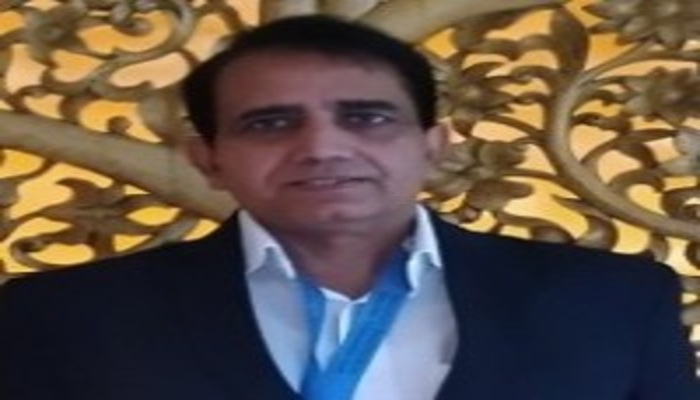India May Cut Tariffs on 90% of US Goods if Deal is Reciprocal: GTRI

Founder of the Global Trade Research Initiative (GTRI) Ajay Srivastava
New Delhi could drop duties on 90% of US exports if Washington agrees to mutual tariff cuts, says Global Trade Research Initiative.
India may agree to remove tariffs on up to 90 percent of American exports as part of an emerging trade agreement, but only if the United States reciprocates with equal concessions, according to a leading trade think tank.
Ajay Srivastava, founder of the Global Trade Research Initiative (GTRI), said on Wednesday that India could adopt a ‘zero-for-zero’ framework with the United States, eliminating tariffs on the vast majority of American goods from the outset of the agreement. However, he cautioned that such a move must be based on strict reciprocity.
The remarks come after former United States President Donald Trump claimed during a meeting with business leaders in Qatar that India had “offered us a deal where basically they are willing to literally charge us no tariff.” The Indian government has not issued an official response to the statement.
Tariff Offer Yet to Be Confirmed
While Trump’s comments have reignited speculation over the status of India-US trade negotiations, Indian officials have been more cautious. According to CNN-News18, which cited unnamed government sources, no final agreement has been reached and any tariff reductions would need to be matched by the United States.
“The deal must ensure strict reciprocity, with both sides eliminating tariffs equally,” Srivastava said, adding that India should exclude sensitive sectors like automobiles and agriculture from the arrangement.
Srivastava’s comments reflect a broader concern in New Delhi over protecting domestic industries while advancing trade ties with key partners. Talks are ongoing to develop a Bilateral Trade Agreement (BTA), with officials targeting a preliminary version by September or October. A scaled-down framework may be pursued within the next 45 days, according to sources familiar with the discussions.
Upcoming Talks and Political Timing
Indian Minister of Commerce and Industry Piyush Goyal is set to travel to the United States on May 16 with a delegation aimed at pushing forward trade negotiations. His visit follows that of US Vice President JD Vance, who was in New Delhi in April to explore potential breakthroughs in the deal and prevent the imposition of US tariffs on Indian goods.
Goyal’s meetings in the US are expected to cover key sticking points, including tariff alignment and market access. Indian negotiators are reportedly focused on securing favourable terms without compromising on key domestic interests.
Retaliatory Duties Proposed by India
Meanwhile, India recently moved to impose retaliatory duties on US products under World Trade Organization (WTO) guidelines. The move came in response to American safeguard duties on Indian steel and aluminium exports.
In a communication to the WTO, India said the US measures could affect approximately $7.6 billion worth of Indian-origin imports, potentially leading to a duty collection of $1.91 billion. These retaliatory duties are intended to counterbalance what India sees as unfair trade restrictions imposed by the US.
India-US Trade Relations
Trade relations between India and the United States have experienced highs and lows in recent years, marked by disputes over tariffs, market access, and regulatory standards. India had previously been excluded from the US Generalized System of Preferences (GSP), which had allowed duty-free entry for certain Indian goods.
Despite differences, both countries have continued to engage diplomatically to resolve trade issues. The pursuit of a bilateral trade agreement reflects broader efforts to deepen economic ties amid shifting global supply chains and geopolitical alignments.
India’s cautious yet open approach to the proposed deal signals a strategic balancing act—seeking greater access to the US market while shielding vulnerable sectors at home.
If agreed upon, a zero-tariff framework covering most goods could mark a significant shift in India-US economic relations and pave the way for expanded cooperation in other areas, including technology, energy, and manufacturing.
The next round of negotiations is expected later this month, with both sides signalling interest in a pragmatic, mutually beneficial outcome.

Reliance Retail acquires Kelvinator, The Coolest One
Reliance Retail has purchased the Kelvinator brand from Electrolux for nearly ₹160 crore, aiming to strengthen its position in India's consumer durables market.
| 2025-07-19

Saiyyara has shattered every myth about launching newcomers. No big names, no big PR
Madhur Bhandarkar praises debut film 'Saiyaara' for its raw talent and storytelling, marking a shift in Bollywood's approach to newcomers.
| 2025-07-19

India slams reports blaming pilots for Air India crash
India's AAIB disputes US media assertions regarding Air India AI 171 crash, highlighting ongoing investigation and sensitivity towards victims' families.
| 2025-07-18

India Secures Four-Wicket Win in ODI Series Opener Against England
India achieves a four-wicket victory over England in the ODI series opener, led by Deepti Sharma's unbeaten 62 runs.
| 2025-07-17

Air India inspection claims no problems found with Boeing 787 fuel control switches
Air India has conducted thorough inspections of its Boeing 787 fuel control switches, reporting no problems following a DGCA directive.
| 2025-07-17




